Interview with Benjamin Von Wong
- Rodolfo Felici

- 2 giu 2019
- Tempo di lettura: 13 min
> Dear mr. Von Wong, Could you talk briefly about your life, about your career as a mining engineer and the path that led you to photography? My name is Benjamin von Wong, I am 32 years old, I was born in two first generation immigrants family: my parents are Chinese Malaysian and I am Canadian. I went to 13 different schools in three different countries in three different languages and never really had a background in the arts. I did play violin for ten years, I did some martial arts, but ultimately I was never quite good at all the different art forms that I pursued and so it was never really in the plans. I bought my first camera while I was working as a hard rock mining engineer in a wine in Winnemucca Nevada in November 2007; a girl had just broken up with me and I just had to find some way to keep myself busy, keep my mind off of things, and so I thought "the stars were pretty, why not buy a camera?" And so that's kind of how it all started. I did photography on evenings and weekends, it was just sort of that companion, something to keep me company, and when I got back to Montreal joined the Photo Club and just started shooting quite a lot, and I think things got really interesting when I finally got my first paid job. It was the first time I realized that I could get paid to have a good time: get paid to do something that I enjoyed, and that's where things I think really started taking off.
> Could you tell us about the GoFundMe "Saving Eliza" campaign, and what you did for little Eliza O'Neill? How's the baby now? So, I was on an airplane flying between Australia and Singapore, and I received this email from DL Cade; he was PetaPixel Editor in Chief at the time, and he had just received a plea from the father, Glenn O'Neill, on the fact that he was trying to raise money to save his little girl who was dying of a terminal degenerative brain disease called Sanfilippo syndrome; now they had tried to do all sorts of crazy things to raise money but ultimately they really wanted to raise about a million dollars within the course of a couple months in order to give their daughter a chance at life, and so they were just reaching out to different creatives trying to find someone who could possibly make a viral video; at the time I hadn't really made any video, and I just thought like "okay this sounds like something really difficult, it's something I've never done before, why not give it a shot?". I just said like "look, I have a little bit of time in a couple weeks once I get back to Canada, I'd be more than happy to fly over and help you guys try and make a video". And so, long story short, I flew myself over, stayed on their sofa for about 10 days, helped them put together a video. They took that video and just put it on GoFundMe, and we managed to raise a million dollars in a month, and two million dollars by the end of the year with the video. I think Sanfilippo foundation didn't really have a really good story, they didn't have a good way to explain how devastating the disease was, and so all I did was tell the story of how Eliza was basically struck with his disease, where around the age of three her learning starts to slow down, and then from there she just slowly starts losing the ability to walk talk and speak until she eventually dies in her teenage years, so it's like a sad and depressing story and pretty devastating, and they just had never put that story together, so I helped them do that. They are the ones that deserve all the credit for really marketing it and pushing it out there. Eliza is turning nine years old, she did get eventually treated but at the end of the day it's also a clinical trial, and so they're still watching the results, checking out the growth and she seems to be doing better than if she hadn't been treated, she's still not normal per se, but they're still fighting, so we'll see. It's never over until it's over. > Can photography and art in general really change the world? I do not know if art can change the world on its own, but maybe it can influence key players, it can inspire movements, it can inspire people to make a difference, it can inspire change. I think it's one of those things that allows you to connect to different people without words, and it crosses borders, it crosses language, and there's just something really important about that. At the end of the day there's something that's just really powerful about story, it strikes us in our hearts over our minds and it sort of closes the gap between our hearts and our minds, and there's some power to that. The reason I have decided that I wanted to focus on social impact based projects is because I think that I have the privilege of living in a first world country: I have an education, I've support family... I should be doing as much good as possible with the skill set that I have, and that just happens to be photography storytelling, video marketing campaigns in general.
> What gear do you prefer to use? Do you ever use film? I am still shooting with a Alpha7 r2 and a 16-35mm f/4, it's my basically my primary setup, I haven't had any good reason to upgrade yet. Between Alpha7 r2 and Alpha7 r3 the r3 is undoubtedly better, but I don't think that I would take a better photograph with the Alpha7 r3 and so I haven't really felt the need to upgrade. The reason I don't want to shift into medium format it is the price, but more importantly it's the fact that the work that I create I want it to be relatable, and when you shoot something with gear that is too fancy I find that it has the opposite effects, that alienates people. I mean, that's what the art world is all about: it's about creating something that nobody else can do, and I just find that I find that so different from my mission which is to to get everyone to believe that they have the possibility of making a difference, that they can do anything that they want to do if they just set their hearts and minds to it. So, that's kind of what I do, and as for film... I've tried film, I've developed maybe two rolls of film in my life, it's not really for me. It's fun, I love pressing the button, I love the mystery, but it's just not practical. I see photography and arts in general as a tool, I don't really do it for self-expression, I do it a lot more to make a difference in the world.
> I know you made the Huawei P8 campaign. I have to tell you that I currently use a Huawei P10 because of the images you took for that campaign, which went around the world and really impressed me quite a lot at the time. Do you think that the smartphone represent what the 35mm represented for analogue photography?
I definitely believe that smartphones are the future of photography. I am just waiting for the day that a cell phone company will actually hop into the camera market, because they're already so smart and so incredibly ahead of all these digital systems that there is no way that digital SLRs and so forth can actually keep up. I'm just waiting for the day that we can take a phone and slot it into a system that allows for interchangeable lenses, something that allows an increase of quality that doesn't rely too much on AI. The fact that you can do so much with this so little is amazing, imagine if they took this and blew this technology up just a little bit. I'm thinking being able to take multiple exposures at the single press of a button by simply overlaying different exposures, I'm thinking of how machine learning and AI will have the possibility of improving images or modifying things on the fly. I definitely, definitely hundred percent believe that phones are the future. I mean they're not even phones anymore, they're almost computers but where it's headed is absolutely phenomenal, and I don't know what the camera companies are doing. I don't know why they're taking so long to innovate but, out of all the cameras that I use, I use my cell phone the most and so... Right now I'm using a Samsung Note 8 with a bunch of Moment lenses and it just does the job for most of the things that I do. I still want the quality of a full-frame camera when I when I'm out shooting for work, but otherwise I just used my phone and it does a pretty decent job.
> Your photographic genre is sometimes referred to as hyper-realistic. It is strange to define a photograph as hyperrealist, usually we speak of hyperrealism referring to a painting, or to a sculpture. Do you recognize yourself in this definition?
The default reaction when people see my work is always like "wow what am I looking at? Is it real? Is it a painting? Is it fake?" and so I think that at the end "hyperrealism" is not entirely false, whether it like. I'm not an art student, I don't know the actual definition of what hyper-realistic art should look like, but whatever, it's just a word and people can call my work whatever they want.
> Many of your colleagues would rely on Photoshop to obtain images like yours. It seems to me that the realization of sets and scenography is really important for your work, and that your desire is to obtain images of situation as real as possible, despite the meaning being allegorical. Why is it important for you to photograph real scenes, objects, and weather conditions? I imagine that making each of those sets is extremely expensive and that requires a great deal of effort. There are a couple reasons why it's important for me to do things the hard way: the first is that when I started out trying to stand out as a photographer I realized that people really enjoyed seeing the process, they liked watching how things come to life, and so the process to me has always been a part of the story. Later on, there was this period in time where I was doing maybe 50/50 in terms of Photoshop and shooting. Later on I came to realize that at the end of the day what I really love in life is to travel around and have new adventures and meet cool people and like live these experiences, and it was less about just sitting in front of a computer all alone making sure that the final image looked good. So I decided that I wanted my work to reflect the lifestyle that I wanted to have, and so that's why things slowly shifted a lot more into the realism, mainly due to my lifestyle; most recently, as my work has had a social angle, it's almost become supremely important for what I do to be real because the fact that it is real makes it even more striking.
The fact that there is so much waste out there that you can just swim inside of, I don't know, for me has become even more like has created an even more visceral feeling that I try to share with other people; and then my latest evolution where I'm at right now: I'm really trying to create worlds for other people to photograph inside of. You know, I'm just one person and if I'm taking one photograph it'll go online it'll last for for 24 hours 48 hours and then people will forget about it, because the algorithms today are just quick to forget; so for me what's been really important has been to share this experience as much as possible, and there's nothing that is more powerful than to walk through one of these, our installations that are just filled with trash, like the majesty and the grandioseness of being inside of a space; the experience is actually quite visceral and so that's something that I really enjoy doing, and I figure that if I'm going to be building these worlds for a photograph why not build these worlds so that anyone else can take a photograph? I mean everyone has a smartphone right? Everyone has an Instagram account, everyone is a micro influencer, and I want them to talk about the problems that this world is facing, and I figure that if I can do that in a cool way I can make it clever; if I can make it unique and different then I'm empowering everyone to make a difference.
> Your approach to photography is very peculiar. Your subjects are taken from real life, and the special effects are all inserted before the shot. You have a very filmic approach: you create elaborate scenography, and use special cinematographic effects like cables, but seems that you don't make use of digital special effects as instead happens in the vast majority of current films. The images you create are the result of your imagination and will, but at the same time they are a document of what you have created. What value do you give to photography as a document?
I think I have to say that the behind the scene photos of the projects that I create are almost more important than the final results themselves, and that's sort of ironic right because I've I've become known as a photographer, but really it's the behind the scene photographs other people take that truly stand out, because that's when you see that it's all real, and so... yeah, I think that photography to document things is super important but really it boils down to storytelling, and storytelling can be film it can be video it can be photos it can text it can be any medium possible, and photography is just kind of the most obvious one for these projects.
> Do you ever snap to document what you want to remember, or what you would like show to posterity? Personally me not really; if I didn't taking a photograph it's typically for a reason because I want to share it with people, like I said I I don't really view photography as something personal, as much as a tool to execute a function for me. > Could we say that the core of your work does consist in the artistic performance, and that photography is the tool that you have chosen to document them?
I think the core of what I do lies in the purpose of what I'm trying to create, and so my work has always had a greater meaning than the photos themselves. When I first started out my goal was to teach people how to take photographs, and then as it evolves my goal is to inspire people to believe in their own power to be creative, and then further on the line which is sort of where I am now my goal with my work is to inspire people to believe in themselves, so that they have the power to make a difference. So I think the core of what I do has somewhat changed over time but it has always been about creating for others and not for myself. > How many people work with you on a photo shoot? I imagine you rely on a large group of trusted collaborators. Yes I know, my projects typically attract anywhere between 50-75-100 volunteers that come and help and make the work possible, and so there are just a ton of volunteers that come and donate their time energy and effort. The "core team" sort of changes because I work so much internationally and we don't always have budgets; I mean, we actually rarely have budgets to fly people in, and those are only happening on the large commercial projects where we can fly an entire team in, at which case yes we will use people that have that we've had positive experiences within the past, but if not at its core it's me and whoever else we bring along for the ride. I think these days what's evolved to be the most important is definitely the video component because that's the hardest thing to actually make sure you have someone who's good who knows how to tell a story, photography the behind the scene for documentation is important, a little bit harder to justify from a cost perspective, and then most recently there is the builders or the fabricators that have to come and support the project, that's becoming something increasingly important but we try to find somebody local.
> Are the themes of your creations chosen by the clients or are they personal projects? I think in the distribution of my work about 80 percent of the projects that I do are personal and then 20 percent are hired, but there's actually like three categories of projects, right there are personal projects where everything is funded by like me or whoever's involved, just like basically I'm personally funded then there's sponsored projects in which case we kind of try to raise a little bit of money, to offset the cost of the projects. I mean... doesn't mean that anyone else is paid, it just means that we sort of like helped pay for the cost of creating the second kind of campaign, and then the third is a commercial campaign which is an actual commissioned project which is where a client comes in and says "hey we have this problem we're trying to solve it through art, can you help us do that?". And so those are kind of the three major categories of things, and so in all three cases though I'm generally the one building the entire creative vision, along with all the collaborators of course, but no one really comes with a fully formed picture in mind and says like "hey can you just do this very specific thing?". I think the reason is simply because people come to me because they want something weird, they want something different, they want something big that they haven't done before. That that's kind of what I do, I do things that have never really been done before, and I'm always thinking bigger, larger, as interactive as possible and so... I don't know, I think I really see myself as the person who's doing these like larger-than-life pieces. > Could you talk to us about your next project? I don't know what my next project is. I've just done I've done a number of projects right now that I just wrap. I did three projects in three months and and it was really exhausting; right now there's been a lot of inbounds, a lot of people that have reached out and said like "hey we'd like to work together". Whether it's sponsored collaborations, like personal or commercial: I have all three right now but none of them have committed, like there's nothing that's signed, there's nothing else committed, we have no dates, we have no like "raw materials" that are just waiting to use. It typically takes weeks or months of just talking and piecing the pieces together, and figuring out who's actually going to commit before something comes to life. So what you see is sort of the tip of the iceberg, the rest just slowly evolves over time, so I just simply don't have an answer for you. I'm exploring a ton of different things right now, I'm putting together a bunch of pitch decks, but nothing has actually gone through 100%.
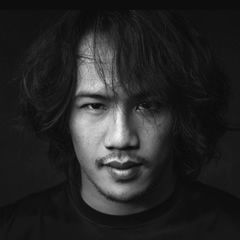
Facebook: fb.com/thevonwong
Twitter: twitter.com/thevonwong
Youtube: youtube.com/thevonwong
Snapchat: snapchat.com/vonwong
Instagram: instagram.com/vonwong














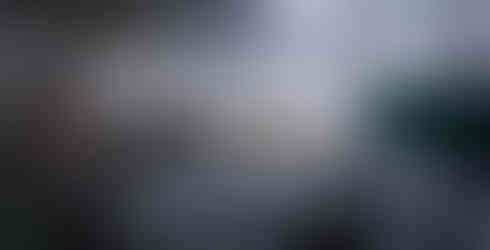


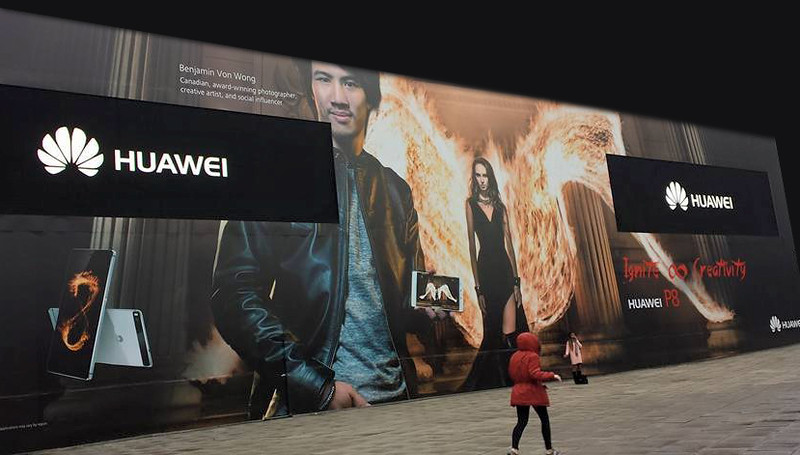

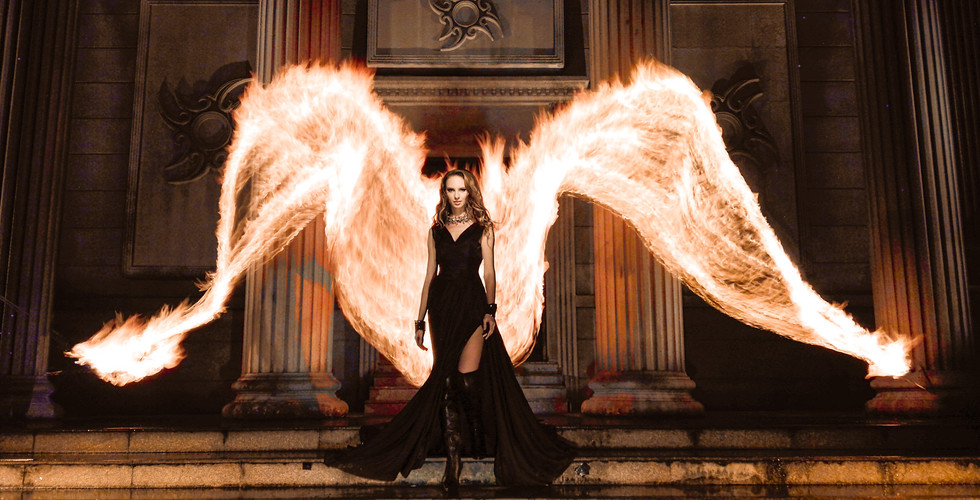

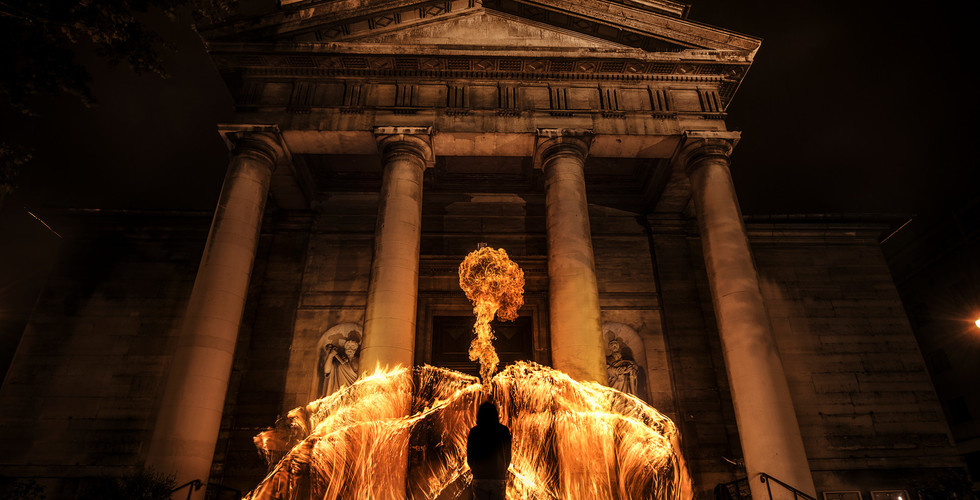









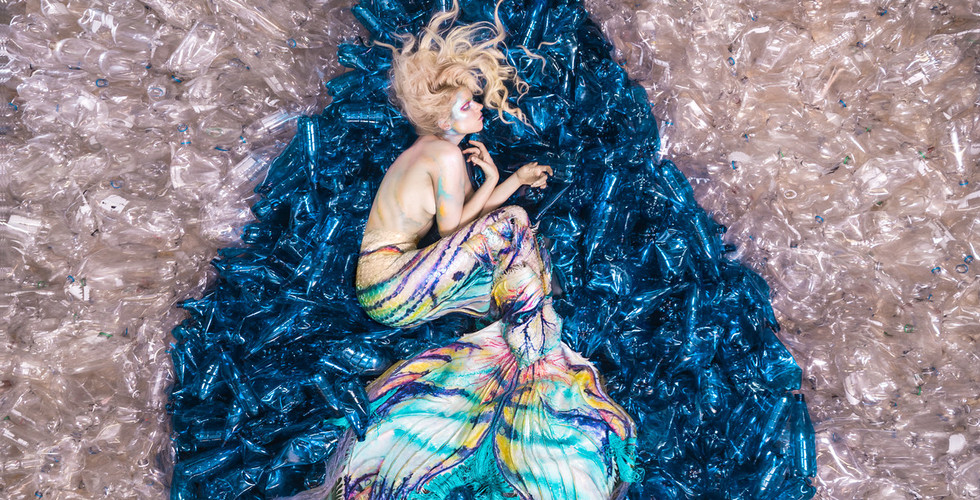



























Comments